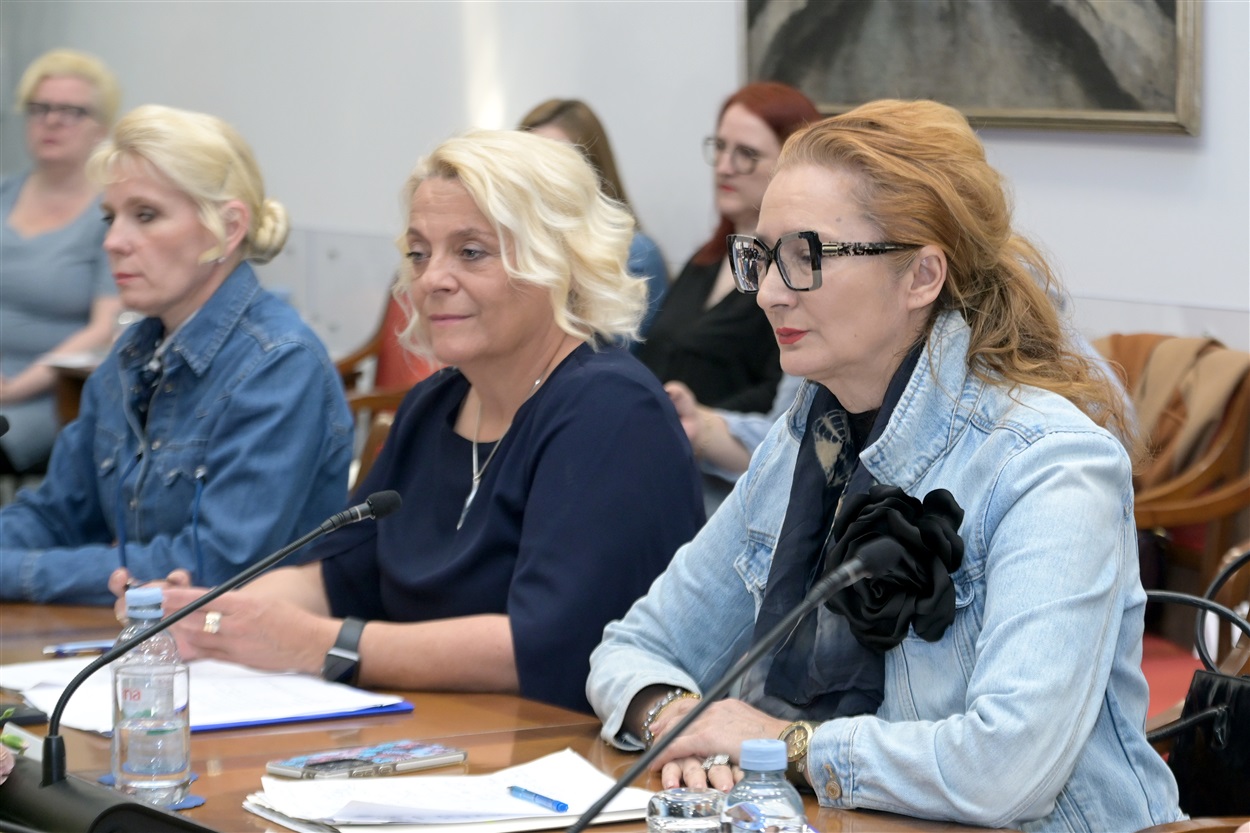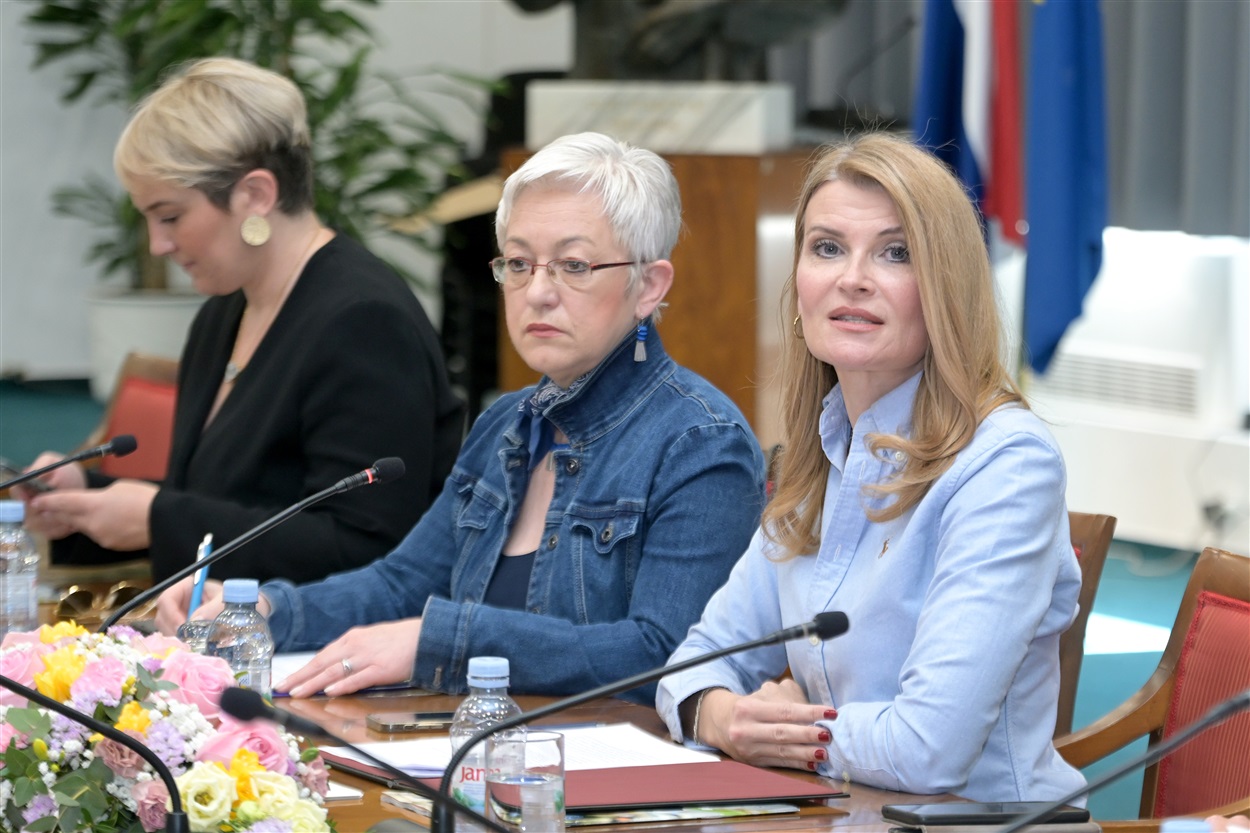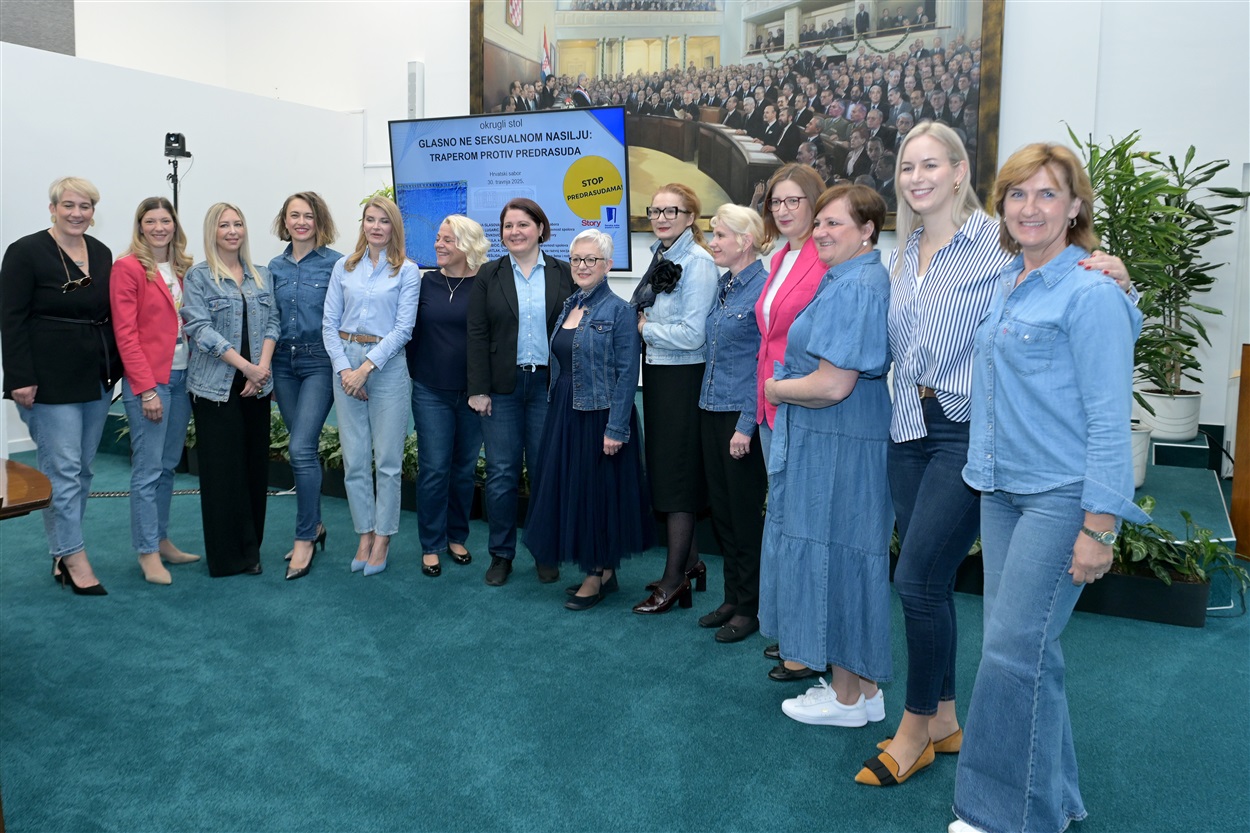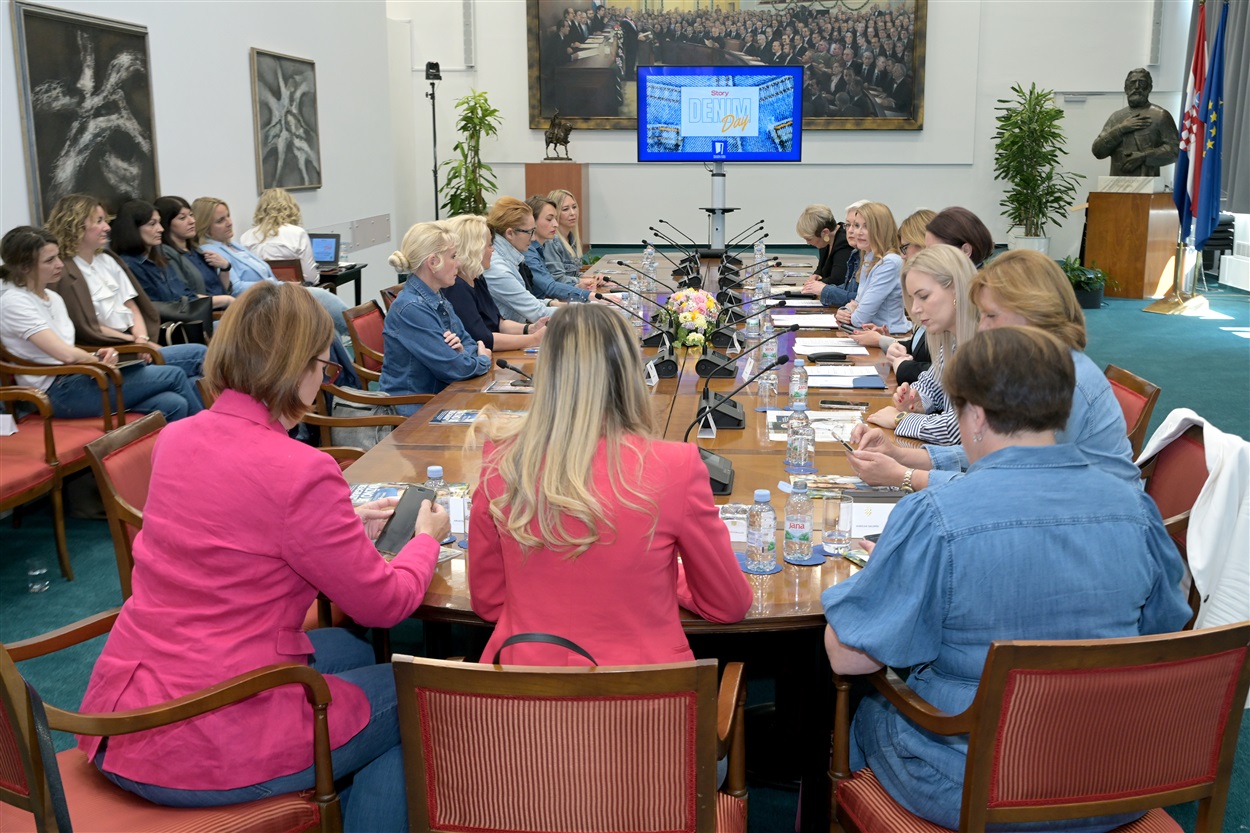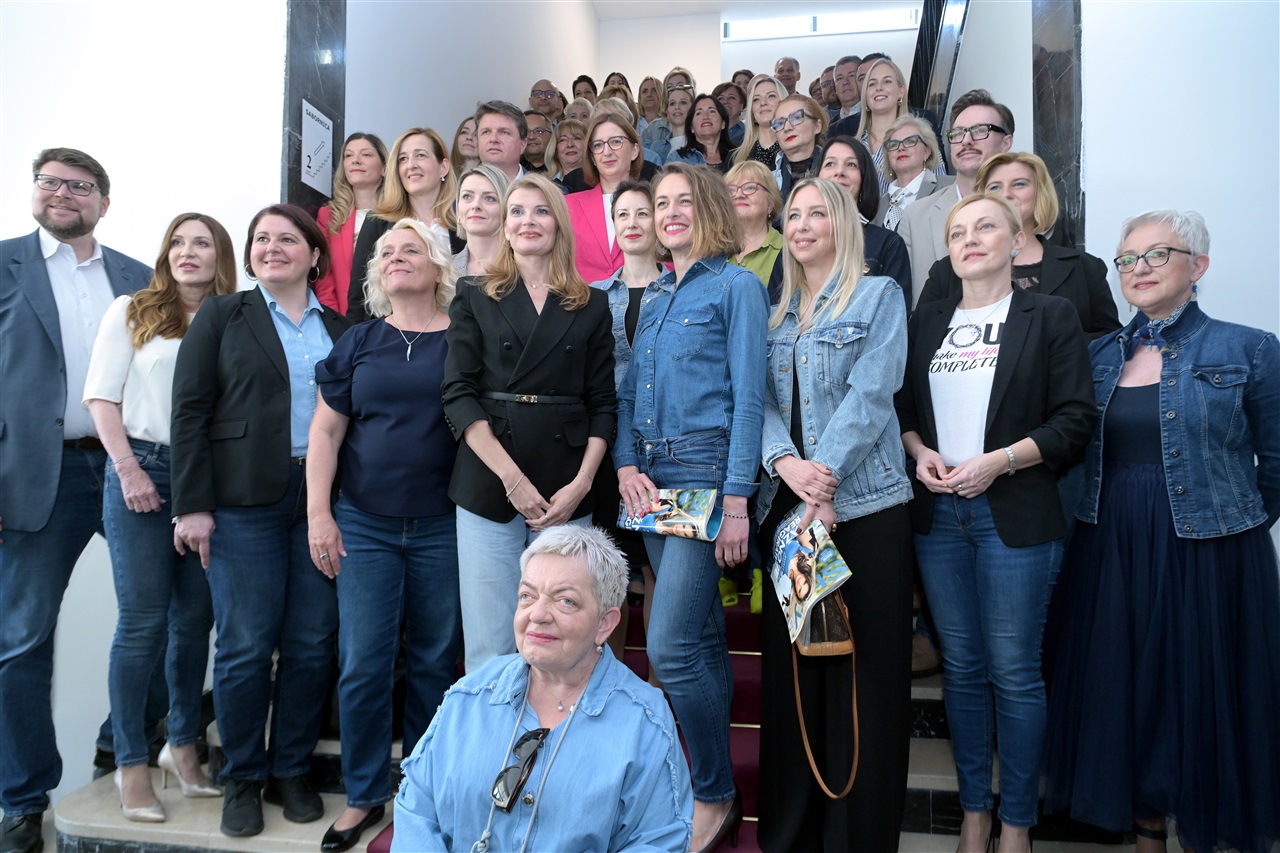
Zagreb - On the occasion of Denim Day, the international day for combating victim-blaming in cases of sexual violence, female MPs gathered for a roundtable to highlight the rise in brutal violence against women and to call for institutional protection of victims and a shift in societal attitudes.
“Denim Day reminds us that we still live in a society that too often asks the victim: What were you wearing, where were you, why didn’t you speak up straight away?” Deputy Parliament Speaker Sabina Glasovac said during the discussion in the Sabor.
She stressed that parliament must not only be a symbolic space for commemoration, but also a place for making real political decisions.
“There can be no justification for sexual violence. Both as a society and through our institutions, we must state clearly that the perpetrator is solely to blame,” she added, highlighting Ženska Soba (Women’s Room) as a place where victims can seek help, advice and support.
In 2023, 8,460 criminal acts of domestic violence and violence between close persons were recorded, alongside 7,675 misdemeanours, which was the first time that criminal cases have outnumbered misdemeanours, said Višnja Ljubičić, the ombudswoman for gender equality.
She said this indicates increasingly brutal forms of violence, but also improved recognition of violence as a criminal offence, and underlined the need for stronger institutional support and prevention.
“Experts say that only 2 to 8 percent of reports are false. Women most often remain silent rather than report falsely,” said Marija Lugarić, chair of the parliamentary Gender Equality Committee, dismissing claims of frequent false accusations of sexual violence as unfounded.
Vesna Bedeković, representing the Parliament Speaker's Office, recalled the case in Italy from 1992, in which a court rejected a rape report on the grounds that “tight jeans cannot be removed without the victim’s cooperation.”
It was this case that inspired the creation of Denim Day, observed on the last Wednesday of April, in Croatia since 2021, as a symbol of the fight against sexual violence and the stigmatisation of victims.
“The state must ensure that violence against women is treated as the gravest form of abuse, and the National Action Plan must be actionable, not merely declarative,” Bedeković said, while the Ministry of Social Policy underlined the importance of turning conclusions into laws and policies.
Maja Mamula, coordinator of the Women’s Room, said society must create an environment in which victims do not feel ashamed, emphasising that this is the responsibility of all institutions.
MP Anka Mrak Taritaš of the GLAS party said discussions about victims and perpetrators are not ideological, but about human rights.
“It’s time we all understood that it is not the victim who should have to explain what happened, it is the perpetrator who must be held accountable,” added Anđelka Salopek, MP from the ruling HDZ party.
